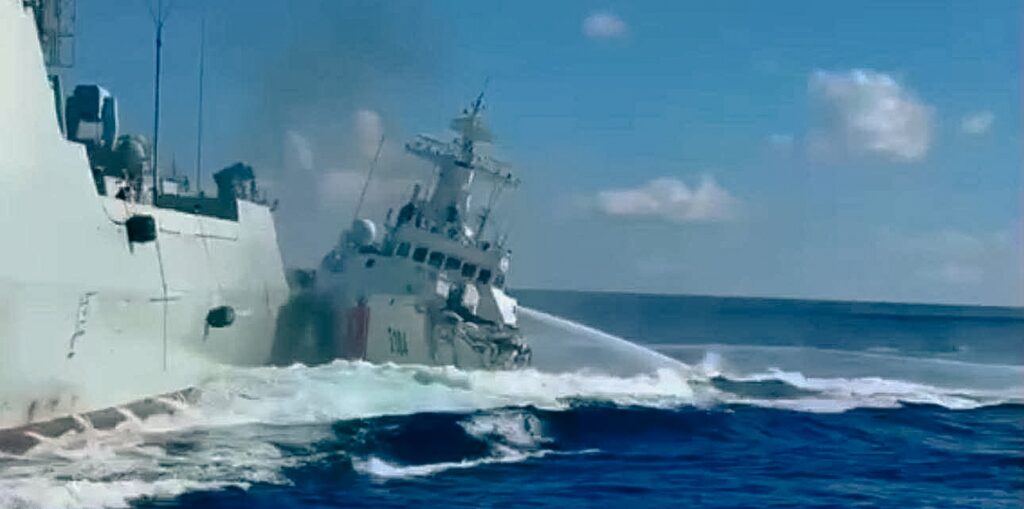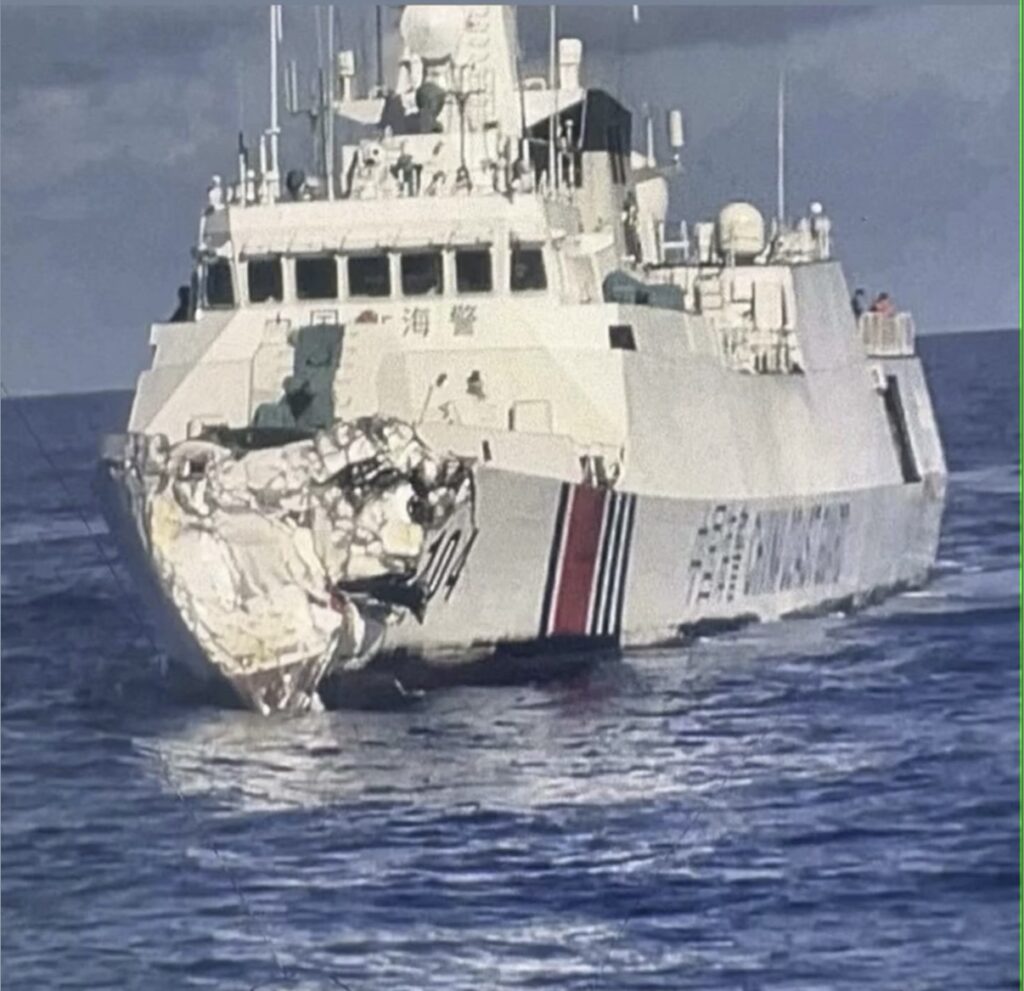Chinese Ships Collide While Pursuing Philippine Vessel
Two Chinese vessels crashed into each other during a high-speed pursuit of a Philippine patrol boat in disputed waters.
This incident adds new pressure to an already tense maritime standoff.
What Happened
Philippine patrol boat was on a routine mission near contested territory.
Two Chinese ships moved in quickly, attempting to block its path.
Both Chinese vessels collided during the chase.
No casualties were reported, but both ships sustained visible damage.
Why This Matters to You
The South China Sea is one of the busiest waterways in the world.
What happens here can affect your economy, your security, and even the price of goods you buy.
China claims large portions of these waters.
The Philippines, along with other Southeast Asian nations, disputes these claims.
Every incident, such as this collision, increases the risk of larger conflict.
Key Details from Witnesses
The Philippine vessel maintained its course and speed.
Chinese ships tried to intercept from different angles.
High speeds and close maneuvers left little room for correction.
The collision occurred in full view of nearby fishing boats.
Maritime Law and Territorial Rights
You might be wondering: who has the right to be in these waters?
The United Nations Convention on the Law of the Sea (UNCLOS) grants nations rights to resources within 200 nautical miles of their coast, called the Exclusive Economic Zone (EEZ).
Parts of the South China Sea fall within the Philippine EEZ.
China’s “nine-dash line” claim overlaps with these zones, causing disputes.
This incident highlights the gap between international law and actual practice at sea.
Previous Clashes
This is not the first dangerous encounter in the area.
In past years, Philippine vessels have reported being blocked, shadowed, or even rammed by Chinese ships.
Fishermen have been warned away from traditional fishing grounds.
Coast guard and navy ships often operate in close proximity, raising collision risks.
Political Reactions
Philippine officials called the collision “reckless and aggressive.”
They said their patrol was lawful and within the country’s rights.
Chinese authorities have not admitted fault.
They claimed their ships were “safeguarding sovereignty.”
Both sides are using the event to reinforce their positions.
Why Collisions Happen in Maritime Disputes
You might think collisions are rare—but in contested waters, they’re more likely.
Reasons include:
High-speed chases in narrow zones
Multiple vessels maneuvering in limited space
Ships intentionally blocking each other
Miscommunication between crews
Even with advanced navigation systems, human decisions in tense moments can cause accidents.
Impact on Regional Tensions
The South China Sea dispute involves not only the Philippines and China but also Vietnam, Malaysia, Brunei, and Taiwan.
The United States and other countries conduct “freedom of navigation” patrols to challenge excessive claims.
Every collision increases the chance of military escalation.
That means more ships, more patrols, and more room for mistakes.
How It Affects Ordinary People
You might not sail these waters, but you are still connected.
Shipping lanes carry goods to your market.
Rising tensions can disrupt trade.
Defense spending might increase, pulling resources from social programs.
Your taxes, your job security, and your cost of living can all be influenced by events like this.
Lessons from the Collision
Clear communication between ships is critical.
Avoiding escalation should be a priority.
Maritime disputes need diplomatic, not just military, solutions.
What Could Happen Next
The Philippines may file a diplomatic protest.
China may increase its presence in contested waters.
Other nations might step up patrols, further crowding the area.
The coming weeks could show whether both sides will cool tensions—or move closer to confrontation.

Your Takeaway
Maritime incidents like this are more than headline stories.
They shape the future of security, trade, and diplomacy in the region.
When two ships collide in contested waters, the waves they create reach far beyond the crash site.


